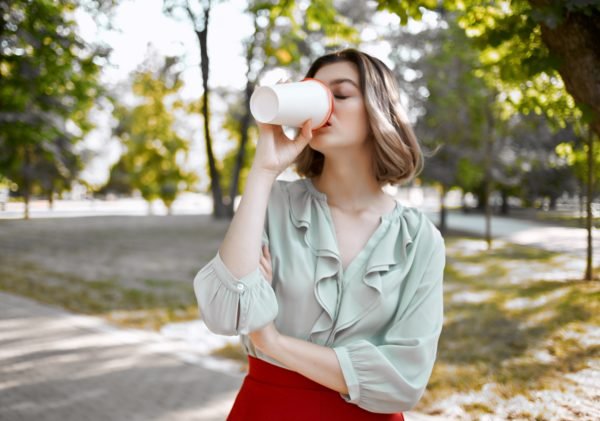
What makes that first mug of coffee freshly brewed from a coffee grinder in the am so heavenly…?
Women who love their coffee, take note: When we sip on that cup of joe, the caffeine binds to our brain’s adenosine receptors, which prevent us from being tired. As well as this, the brewed beverage also stimulates the production of adrenaline and dopamine in the brain, making us feel happier and more energetic throughout the day.
From the anticipation of brewing your morning espresso to the absorption of caffeine throughout your body, coffee has complex and intriguing effects on the brain. We spoke to coffee expert, James Carter from Coffee Direct, who highlights 5 surprising ways your first cup of coffee affects your brain.
1) The Anticipation
Coffee is the most popular beverage in the world, with more than 400 billion cups consumed each year. A lot of people wake up to the anticipation of drinking their first cup of coffee, and it makes them look forward to their day. Anticipation is rooted in the brain’s cerebellum, which controls automatic thinking. When we anticipate a positive situation, such as drinking coffee, our brain desires more dopamine (aka ‘the happy hormone’) as feelings of excitement arise. That means you will feel good even just knowing you’ll soon be drinking your first cup of freshly brewed coffee.
2) The Preparation
Pavlovian theory dictates that certain objects or events can trigger a conditioned response. When we prepare coffee, our conditioned response is that of pleasure, so our brain reacts by releasing even more dopamine into our system. This explains why we feel excited when waiting for our coffee to brew or driving to collect one at our favorite local coffee shop.
3) The Aroma
Smelling the ‘right’ aromas can help us feel happier. For example, we know lavender can help reduce stress, but how does the aroma of coffee help boost our mood?
The smell of coffee hits our scent receptors and acts as a powerful brain trigger, generating good memories and feelings. Some studies have found that the scent of coffee can cause a placebo effect of enhanced responsiveness and an increase in performance. No wonder the saying goes ‘wake up and smell the coffee’.
4) The Taste
Drinking coffee has been unfairly demonised in the past, but moderate consumption can be very healthy. When drinking coffee, the caffeine enters your bloodstream and quickly finds its way to your brain, where it works as a stimulant. As well as boosting your alertness and energy, studies have also connected caffeine consumption to boosting memory and combating diseases such as Alzheimer’s. Ultimately, coffee can improve our reaction time, vigilance and attention throughout the day.
5) The Aftermath
After you have finished your first cup of coffee, you should achieve a state of peak performance. The caffeine will block the inhibitory neurotransmitters, such as adenosine, which would otherwise make us feel sleepy and increases the levels of feel-good chemical dopamine. Therefore, you will notice an increased alertness and an improved mood. We recommend timing drinking your first cup of coffee so you can efficiently maximise the energy you gain. As our cortisol levels are high between 8-9am, we suggest having your first cup of coffee at 9.30am, when your body’s energy levels would naturally be low.
